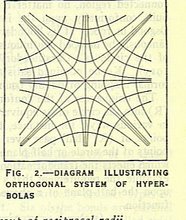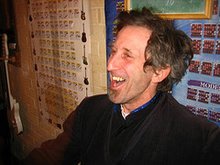I have spent much of my adult life trying to articulate a political creed with which I can live. I regard myself as an Independent Communitarian, a political philosophy with some affinities to the Liberal-Conservative alliance used by MacDonald to create Canada. However, since 19th century political philosophies have become muddled in the 21st century, I use the word Independent instead of liberal since liberalism is rooted in personal liberty, and I use the word Communitarian instead of Conservative because of my trust in British constitutional traditions.
Like MacDonald I have no Tory beliefs: Sir John A. viewed Toryism as a cause rooted in it's original meaning, namely as a circle of government insiders in Ireland who supported the Stuart monarchs and their notions of the divine right of kings to rule. That meaning metaphorically mutated in MacDonald's age to include Ontario's Family Compact, political insiders appointed by successive Lieutenant Governors to run the colony until the creation of responsible government after the Rebellions of 1837-38. In modern usage, the Tory metaphor can be further updated as a feudally-minded insider intent on maintaining power for a tight knit band of cronies. I am not one of those.
All my policy positions derive out of notions of cooperative commonwealth. Pre-cooperative commonwealth political philosophy begins with Thomas Hobbes' book Leviathan, essentially a Christian treatise on governing humanity inside the Fallen World, but which Oliver Cromwell applied to the Protectorate he created when he executed Charles I in 1649. Cromwell dissolved the House of Lords, and used the House of Commons to establish a system of governance that was run by his friends and supporters amongst the landed gentry, the so-called squirearchy. That system of government is essentially the one still in operation today.
In Cromwell's day two other groups of people, the Levellers and the Diggers, tried to gain access to the House of Commons. Levellers were Commoners, ie tenant farmers and Guild tradesmen, while the Diggers were itinerants, an underclass that had been displaced from their homes by Enclosure Laws, which were used by the gentry to privatize former crown-chartered common lands. Cromwell betrayed both the Levellers and the Diggers, while the Levellers in turn betrayed the Diggers.
The Levellers, who by and large abandoned the land in the 1800's in order to become workers in newly industrializing England, eventually gained access to the House of Commons in part through the Reform Acts of the 1830's, but largely through the 20th century Labour Party. Similarly, in Canada during the twentieth century, the right to vote was granted to non-land owning men and women by conservative Prime Minister Borden after the mass slaughters of such classes during WWI. Canadian Tories like Arthur Meighen, and Guelph's own Premier George Drew, fought long and hard against any and all rights being extended to the working class or the under-classes.
When an alliance of Labour and Farmer progressives created the Cooperative Commonwealth Federation (CCF) in 1932, they had to fight a long, and ongoing battle against Tories who convinced the public that the CCF were Bolsheviks instead of heirs to a long and honourable British tradition of constitutional evolutionaries. The CCF became the NDP, a combined British-style Labour Party and a neo-American Democratic Party, but in doing so lost sight of Cooperative Commonwealth.
Mike Harris and his so-called Common Sense Revolutionaries can best be understood as Ontario's landed classes waging a Cromwellian war against both the Levellers in the working class and the Diggers in the underclasses. Harris' battle against the Indians of Iperwash, and the killing of Dudley George is as pure an expression as can be found of the betrayal of British Constitutional evolution by those supporting the Meighen Streak in Canadian Toryism.


No comments:
Post a Comment